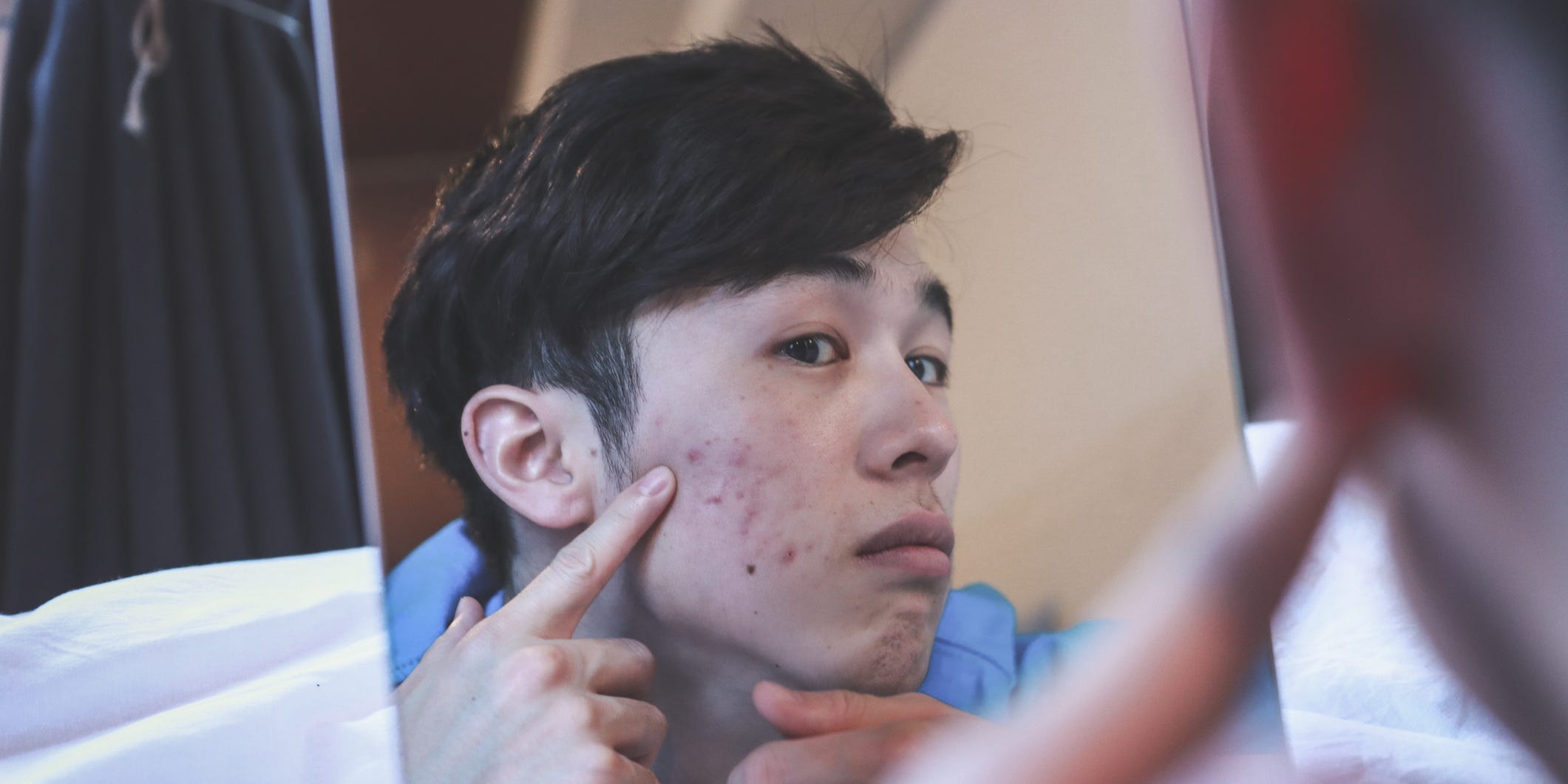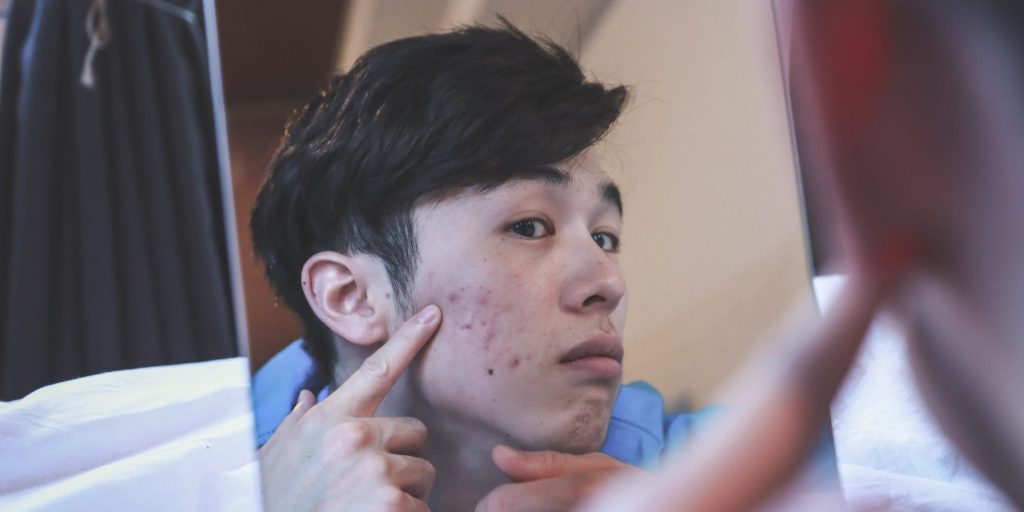
kyonntra/Getty Images
- Benzoyl peroxide kills the germs that cause acne and can help dry up oily skin.
- It is also a mild exfoliant and can clear your pores of acne-causing debris like dirt.
- If you have severe acne, opt for creams and gels that contain benzoyl peroxide, rather than soaps.
- Visit Insider's Health Reference library for more advice.
Benzoyl peroxide is an antiseptic acid that kills acne-causing bacteria on your skin.
However, benzoyl peroxide can cause side effects like redness and flaking.
Therefore, it's important to find the right product and regiment for you, whether that's using creams, gels, or face washes.
Here's what you need to know about benzoyl peroxide and how to choose the right product for you.
How benzoyl peroxide works
Benzoyl peroxide works for all types of acne.
"It works best for inflammatory acne, meaning acne cysts and pustules," Levy says, but it can also treat non-inflammatory acne like blackheads.
Below are the four key functions that make benzoyl peroxide such a powerful weapon against acne:
- It removes acne-causing debris: Benzoyl peroxide can help remove any excess dirt or oil that can clog your pores and contribute to acne.
- It can have a mild exfoliating effect. The acid can help remove layers of dead skin, which makes it easier to clear out your pores.
- It kills bacteria on your skin. Using benzoyl peroxide may help reduce the number of acne-causing bacteria like Propionibacterium acnes.
- It helps dry up oily skin. Benzoyl peroxide is a great option for people with oily skin because it strips oil from your skin, says Lauren Levy, MD, a board-certified dermatologist and acne specialist in private practice.
How to use benzoyl peroxide
Benzoyl peroxide products tend to come in three different strengths:
- 2.5% concentration
- 5% concentration
- 10% concentration
There are also a variety of benzoyl peroxide products available, says Robert Anolik, MD, a board-certified dermatologist and fellow of the American Academy of Dermatology. This includes:
- Creams
- Lotions
- Gels
- Face washes
- Body washes
You can choose which product to try based on your skin type, the severity of your acne, and what area of skin you're treating. It's best to talk to your dermatologist to come up with a treatment plan, but here are a few tips to follow:
- If you have body acne: Products with 10% concentration are the highest strength found over the counter and may be used for body acne, where skin is less sensitive. "Washes are a great option for treating large areas like acne on the chest and back," Levy says.
- If you have face acne: "Start at a lower concentration - like 2.5% or 5% - for the face, which is less drying than the higher concentration products," Levy says. You can start by trying a low dose face wash, or if your skin is very oily, you might opt for a leave-on gel or cream.
- If you have oily skin and severe acne: "Creams and gels are active well after application - as opposed to washes - so they may be preferred for worse acne and less sensitive skin types," Anolik says. Oily skin is also less likely to dry out, so you can use benzoyl peroxide every day, Levy says.
- If you have dry or sensitive skin: You may want to avoid creams or gels if you have dry or easily irritated skin. "Very sensitive skin may do better with washes since the benzoyl peroxide is washed off and not possibly irritating the skin throughout the day," Anolik says. You should also limit your use to a few times per week, says Levy.
You'll need to use benzoyl peroxide consistently to see results in your skin. "You should notice improvement in your acne in several weeks," Levy says.
Risks of benzoyl peroxide
Benzoyl peroxide is a powerful acid that can cause side effects for some, including the following:
- Dry skin: "The biggest side effect of benzoyl peroxide is dry skin and irritation. It can cause redness and flaking in some people, especially those with sensitive skin," Levy says. Luckily, this isn't permanent and should resolve if you cut down or stop using benzoyl peroxide, Levy says.
- Sun sensitivity: Benzoyl peroxide can make your skin more sensitive to the sun and more likely to sunburn, so make sure you are using at least 30 SPF sunscreen whenever you're outside.
- Skin rash: If the rash is very painful or spreads, this can be a sign of an allergic reaction, so it's best to reach out to your doctor.
- Severe redness or swelling: This can also be a sign of a skin allergy and may need medical attention.
It's also worth mentioning that benzoyl peroxide products can bleach your towels, sheets, and clothing, making them discolored, Levy says. To avoid this, rinse off anything that touches benzoyl peroxide thoroughly.
Insider's takeaway
Benzoyl peroxide is a powerful skincare ingredient that can help clear up acne and control oily skin.
For best results, you'll need to find the right product for you, be consistent in using it, and have some patience. "Do not expect overnight improvement," Levy says.
If benzoyl peroxide isn't working for your acne or your skin becomes irritated, talk with your dermatologist to figure out the best treatment plan for you, says Anolik.
